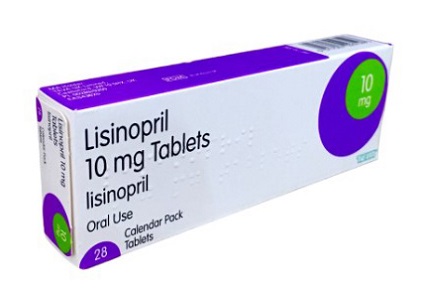New insights from an experimental study on the hypertension drug Lisinopril and COVID-19
Nikhil Prasad Fact checked by:Thailand Medical News Team Jul 13, 2024 9 months, 1 week, 6 days, 16 hours, 33 minutes ago
COVID-19 News: A new study has provided intriguing insights into the effects of the ACE inhibitor, Lisinopril, on COVID-19. The research was conducted by a team from various prestigious institutions including the University of São Paulo-Brazil, the Oswaldo Cruz Foundation-Brazil, and the National Institute of Allergy and Infectious Diseases in the United States. This
COVID-19 News report aims to break down the findings of this study for easy understanding.
 New insights from an experimental study on the hypertension drug Lisinopril and COVID-19
The Background
New insights from an experimental study on the hypertension drug Lisinopril and COVID-19
The Background
COVID-19, caused by the SARS-CoV-2 virus, has had a significant impact globally, leading to severe illness and fatalities, especially in patients with pre-existing conditions like hypertension and heart disease. The virus enters human cells through the angiotensin-converting enzyme 2 (ACE2), a critical component in regulating blood pressure.
Lisinopril, a common medication for hypertension, works by inhibiting the angiotensin-converting enzyme (ACE), which can influence the levels of ACE2. This relationship between ACE inhibitors and ACE2 levels has raised questions about the potential impact on COVID-19 severity and susceptibility.
The Study
Researchers aimed to investigate whether Lisinopril affects lung ACE2 levels and the progression of COVID-19 in an experimental setting. They used ACE2-humanized mice, a model designed to mimic human ACE2 expression in mice, to conduct their experiments.
Key Findings:
-Increased ACE2 Levels: Mice treated with Lisinopril showed significantly higher levels of ACE2 in their lungs compared to untreated mice.
-Viral Load: Lisinopril-treated mice had higher lung viral loads when infected with SARS-CoV-2, particularly noticeable at early stages (3- and 6/7-days post-infection).
-Inflammation: Despite higher viral loads, Lisinopril-treated mice exhibited lower levels of pro-inflammatory cytokines, such as IL-6 and TNF-α, suggesting a reduction in inflammation.
-Disease Severity: There were marginal improvements in body weight, clinical scores, and survival rates in Lisinopril-treated mice. However, no significant differences were observed in respiratory function or lung tissue damage between treated and untreated groups.
Increased ACE2 Levels and Viral Load
The study found that Lisinopril treatment led to a marked increase in ACE2 levels in the lungs of mice. This increased ACE2 provided more entry points for the virus, leading to higher viral loads. Interestingly, while ACE2 levels dropped in infected mice, those treated with Lisinopril showed a rapid recovery of ACE2 levels, correlating with sustained high viral loads.
Reduced Inflammation
One of the beneficial effects observed w
as the reduction in inflammation. Lisinopril-treated mice had significantly lower levels of inflammatory cytokines IL-6 and TNF-α in both serum and lung tissues. This anti-inflammatory effect is crucial because excessive inflammation is a significant cause of severe symptoms and complications in COVID-19.
Clinical Outcomes
In terms of overall disease progression, the differences between treated and untreated mice were subtle. While Lisinopril-treated mice showed some improvement in weight maintenance and clinical scores early in the infection, these benefits did not translate into significant differences in survival or lung function.
Implications of the Study
This study highlights the complex role of ACE inhibitors like Lisinopril in COVID-19. On one hand, increasing ACE2 levels could potentially lead to higher viral loads, but on the other hand, the anti-inflammatory effects might mitigate severe disease outcomes. The dual nature of these effects suggests that the use of ACE inhibitors in COVID-19 patients might need to be carefully considered and monitored.
Conclusion
The findings of this study contribute to a deeper understanding of the interaction between ACE inhibitors and COVID-19. While Lisinopril increases lung ACE2 levels and viral load, it also reduces inflammation, leading to a complex balance of effects on disease severity. These insights are crucial for clinicians managing hypertensive patients during the pandemic.
The study findings were published in the peer-reviewed journal: Frontiers in Pharmacology.
https://www.frontiersin.org/journals/pharmacology/articles/10.3389/fphar.2024.1414406/full
For the latest
COVID-19 News, keep on logging to Thailand Medical News.
Read Also:
https://www.thailandmedical.news/news/american-heart-association-provides-latest-research-updates-on-hypertension-drugs-ace-i-and-arbs-for-covid-19-patients-
https://www.thailandmedical.news/news/uncovering-the-role-of-micrornas-in-heart-disease-and-hypertension
